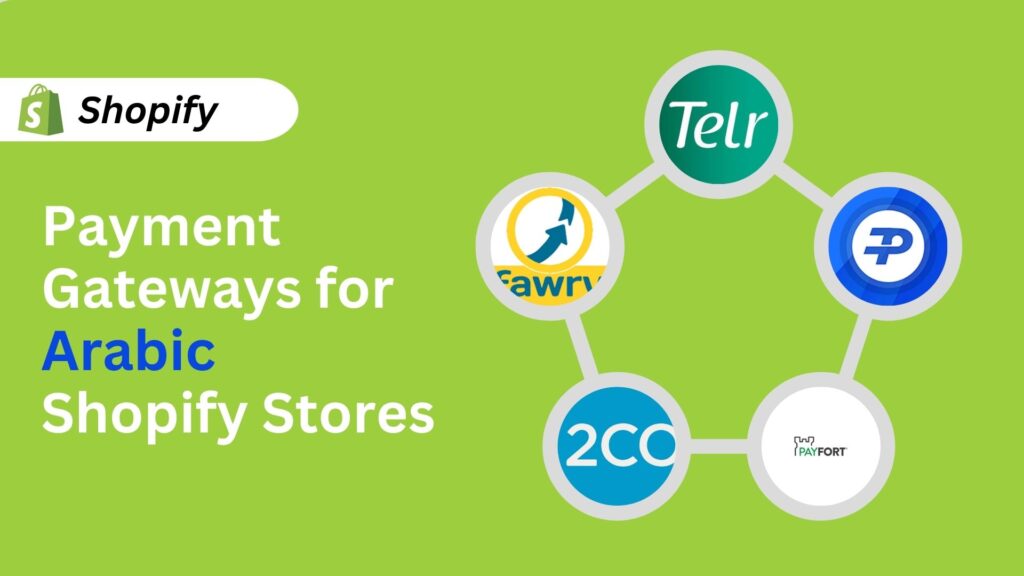
The Arab world, a vast region spanning North Africa and the Middle East, is a cultural and historical melting pot. Its rich heritage, influenced by Islamic traditions, ancient civilizations, and colonial encounters, has shaped its unique identity. The region’s diverse landscape, from bustling metropolises to serene deserts, reflects the varied experiences of its people.
Context:
As global e-commerce continues its rapid expansion, many businesses are setting their sights on new, lucrative markets. Among these, Arab markets present a particularly promising opportunity due to their rising internet usage, burgeoning middle class, and increasing consumer spending. Shopify, a leading platform in the e-commerce realm, offers a solid foundation for businesses aiming to enter these markets. However, to ensure a successful expansion, a strategic approach that addresses cultural, linguistic, and economic factors is essential. This essay delves into the strategies and insights necessary for effectively broadening a Shopify store’s reach into Arab markets.
Navigating the Arab Market:
Before embarking on market expansion, it’s crucial to understand the diverse nature of Arab markets. The Arab world is comprised of 22 countries across the Middle East and North Africa (MENA) region, each with its own cultural, economic, and regulatory landscape. Prominent markets such as Saudi Arabia, the UAE, Egypt, and Qatar each offer distinct opportunities and hurdles.
- Cultural Variations: There is significant cultural diversity within the Arab world. For instance, UAE consumers might have a preference for luxury and international brands, while Egyptian buyers may prioritize affordability and value. Understanding these cultural distinctions is vital for customizing marketing strategies and product offerings.
- Economic Conditions: Economic factors also play a significant role. Wealthier countries like Saudi Arabia and the UAE, with their high internet penetration and disposable incomes, provide a fertile ground for online shopping. Conversely, emerging markets such as Yemen or Sudan might present additional challenges due to varying economic conditions.
Customizing Your Shopify Store for Arab Markets:
Customizing your Shopify store for Arab markets involves a few key considerations to ensure that it resonates with the local audience and meets their expectations. Here are some tailored strategies for making your Shopify store more appealing and effective in Arab markets:
- Localization and Language: Effective localization goes beyond mere translation. While Arabic is the predominant language, variations exist between Modern Standard Arabic and regional dialects. Ensuring that your Shopify store’s content is not only translated accurately but also culturally relevant requires professional translation services and local expertise.
- Payment Solutions: Localized payment options are crucial. Many Arab consumers favor regional payment methods or mobile wallets. Integrating payment gateways popular in the region, such as Mada in Saudi Arabia or Fawry in Egypt, can enhance user convenience and trust.
- Shipping and Logistics: Efficient shipping and logistics are critical to success. Collaborating with reliable local couriers or logistics providers can streamline operations. Providing transparent information about shipping costs, delivery times, and return policies is essential for customer satisfaction.
You may be interested in reading:

Effective Marketing and Engagement:
To effectively market and engage with customers in Arab markets, you’ll need to tailor your strategies to fit local preferences and behaviors.
- Digital Marketing: Tailoring digital marketing efforts to Arab markets is essential. Social media platforms like Instagram, Facebook, and Snapchat are widely used in the region. Crafting culturally relevant content and utilizing influencer marketing can boost brand visibility and engagement.
- SEO and SEM: Search Engine Optimization (SEO) and Search Engine Marketing (SEM) strategies should be adapted for Arabic search terms. Conducting research on Arabic keywords and phrases can improve your store’s search engine ranking. Additionally, localized advertising campaigns can target specific countries or regions within the Arab world.
- Customer Support: Offering customer support in Arabic can significantly enhance the user experience. Providing assistance through various channels, such as chat, email, and phone, and ensuring that support staff are fluent in Arabic can help build trust and loyalty.
Legal and Regulatory Compliance:
Ensuring legal and regulatory compliance in Arab markets is crucial for operating successfully and avoiding potential legal issues. Each country in the Arab region has its own set of laws and regulations, so it’s important to understand the specific requirements for the markets you’re targeting.
- Regulatory Adherence: Each Arab country has specific regulations governing e-commerce, data protection, and consumer rights. Ensuring that your Shopify store complies with these regulations is crucial to avoid legal complications. This may involve understanding local laws related to online transactions, privacy policies, and product standards.
- Cultural Sensitivity: Respecting cultural norms is important. This includes adhering to local customs in advertising and product offerings. Certain images or messages acceptable in Western markets might not be appropriate in Arab countries. Conducting market research and consulting local experts can help navigate these cultural nuances.
Building Trust and Brand Loyalty:
Building trust and brand loyalty in Arab markets involves a combination of understanding cultural values, delivering consistent value, and engaging authentically with your audience.
- Quality Assurance: Arab consumers place high importance on quality and reliability. Ensuring that your products meet high standards and providing excellent customer service can enhance your store’s reputation and foster customer loyalty.
- Community Involvement: Engaging with local communities through sponsorships, partnerships, or charitable activities can strengthen your brand’s presence. Participating in local events or supporting community initiatives can help build a positive brand image.
Conclusion:
In conclusion, the expansion of a Shopify store into Arab markets presents significant opportunities for growth and success in a rapidly evolving digital landscape. As consumers in the region increasingly embrace online shopping, understanding the cultural, economic, and technological dynamics becomes imperative for retailers. By implementing effective strategies such as localization of content, offering diverse payment methods, ensuring mobile optimization, and building strong digital marketing campaigns, businesses can create a compelling online presence that resonates with local consumers. Furthermore, fostering trust through excellent customer service and transparent policies will enhance brand reputation in this diverse market. As Arab markets continue to grow, online retailers equipped with knowledge and adaptability will not only capture market share but also contribute to the burgeoning e-commerce sector in the region. In essence, a thoughtful and informed approach will pave the way for lasting success in the vibrant Arab marketplace.
Read also :
- Shopify: Still a Profitable Powerhouse in 2025?
- Unleashing Your Brand in the Arab World: Why You Should Create an Arabic Shopify Store






